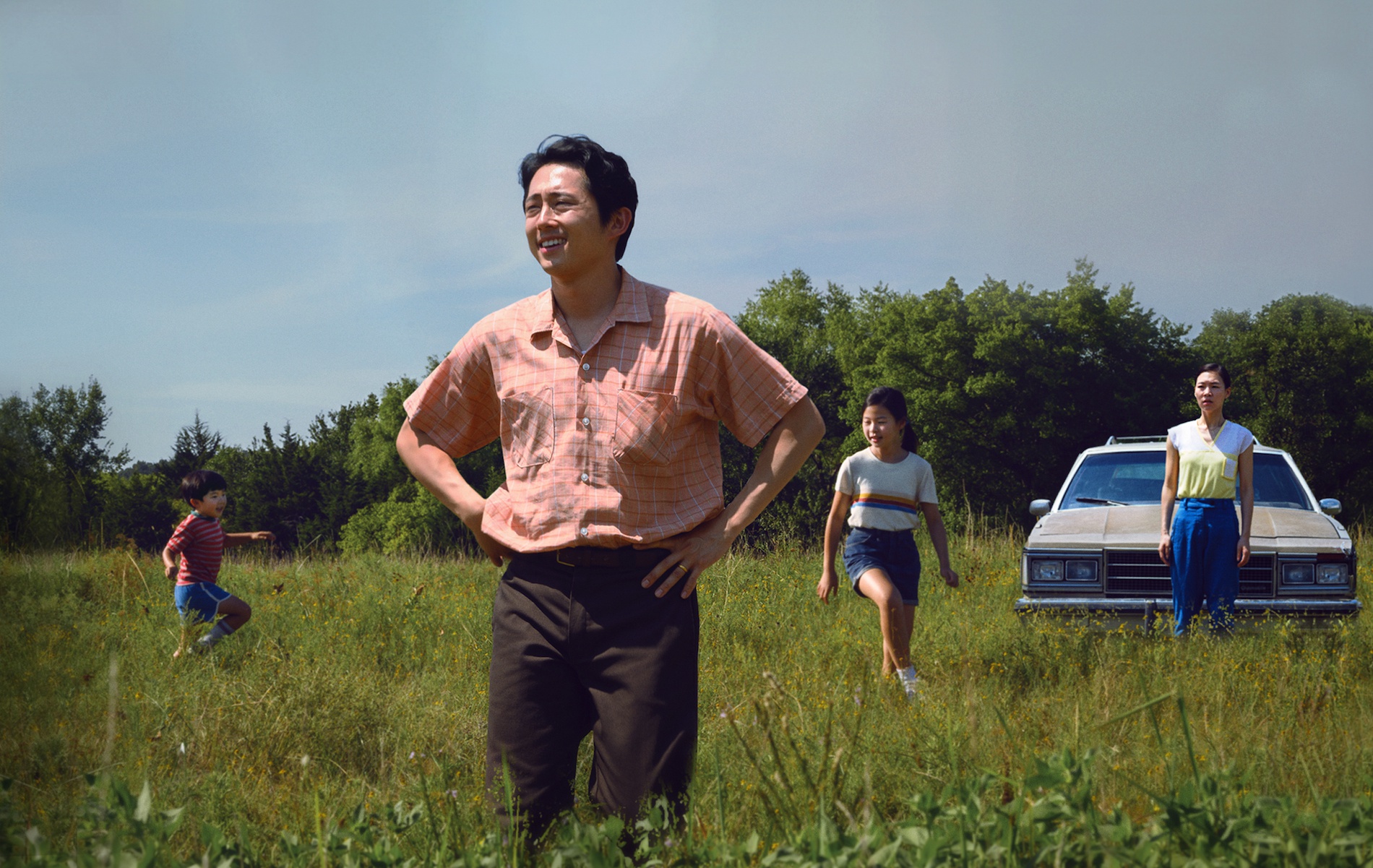At the beginning of Minari, Jacob (Steven Yeun) has a conversation with his son, David (Alan Kim) while settling in his job at a hatchery. He explains to him, they usually get rid of the male chicks because they can’t lay eggs. That they have to make themselves useful. Everything is aware of the concept of the American Dream or the romanticism of it. At its heart, there’s almost a child-like sense of optimism in seeing America as the land of hopes and dreams. A place that with hard work and elbow grease, you can make a living for your family that lives through generations. An occupation that personifies that hope is farming. Even with every dream, there come hardships, adjustments, and shock to family foundations. Director Lee Isaac Chung strikes a beautiful balance at showing the euphoric feeling of hard work against the realization of what it takes to achieve a modicum of success.
In the 1980, the Yi family moves from California to Arkansas, where Jacob buys a plot of land. His hopes are that he can grow Korean crops to sell to cities like Dallas and Oklahoma City. This is in the middle of nowhere and the family has to live in a trailer-type home. Much to the dismay of his wife Monica (Han Ye-ri). They fight almost instantly about this move, as she doesn’t understand it. They have two young children, David and Anne (Noel Kate Cho), (David has a heart condition) with dealing viewpoints on how to provide for them.
The farm becomes a personal goal for Jacob as he wants to provide for his family without the struggles of what they left. The farm succeeding takes on a personal mission for him, but also one that he preserves his culture. With growing Korean produce and adopting old school methods in finding water, there’s a specific way in how he wants to do this. Jacob meets Paul (Will Patton), a former soldier from the town who is extremely religious that helps him out with the farm. Jacob almost rejects his spiritual side for practicality and hard work principles. He refers to himself as a ‘thinker’ and predicates his potential success on it. Jacob doesn’t want to leave things up to random chance or luck.
One of the most important relationships that happens in the film is between David and his grandmother, who comes from Korea, Soon-ja (Youn Yuh-jung). David doesn’t consider her to be a “typical grandmother,” because he himself believes in an illusion of what Korea is. She uses foul language during card games, doesn’t cook or bake, and has “smells different.” However, it’s her heart and the fresh perspective that she brings from Korea that truly uplifts him. Understandably, his parents are worried about him because of what’s going on for his heart. When Soon-ja calls him strong, and he’s shocked, she affirms him and comforts his fears of dying.
During these separate adventures that they have, she plants minari seeds in the woods. It serves as the metaphorical premise for the story itself. Chung states minari is a plant that will grow very strongly in its second season after it has died. The Yi family goes through every hardship you can think of. Threats of separation, sickness, dwindling funds, and trying to acclimate themselves in the deep south. Mostly all of Minari‘s dialogue is in Korean with some specs of English, here and there. While this film its pillars in Korean culture, Chung wrote the story about his upbringing in Arkansas. This is a universal tale and an American story. Chung challenges what we consider the concept of wealth. Is it through tireless work and money or finding it through the togetherness of family? Is it even possible to have a bit of both?
The performances are exceptional in this film. Steven Yeun easily switches from optimistic to downtrodden as things go on. You feel every heavy emotion from him as a father who wants to provide for his family and a husband seeing his marriage slipping away. Han Ye-ri brings a different emotional element as a wife that is trying so hard to hold things together. She mourns for a certain way of life and wants something different for her family other than a struggle. Youn Yuh-jung brings some comedic relief with Kim. She also brings calmness and understanding to a home that’s in disarray.
When Yeun and Ye-ri are on screen together, it’s their magnetism of them trying to understand one another. As Jacob becomes more entrenched in the farm’s survival, it removes his empathy from her. His devotion to this principle of the man having to be the provider distances himself from his family as the movie goes on. They both want the same things, stability and happiness. They are on different roads to get there to where it might lead them to ruin. Even through all the constant fights and hardship, it’s juxtaposed by beautiful shots of nature by cinematographer Lachlan Milne. No matter how hard things seem to get, nature is both healing and hopeful. You can feel the rustic heat and long days of tending to the farmland of Arkansas. Also, the tension of interactions stays around a beat longer to give these characters space to feel what they are saying.
Director Lee Isaac Chung puts a lot of himself into this movie. Its equality distributed between parents that are on the brink of letting go and a child’s eyes that try to see the good in every situation. Every person has their line where they will try to gain everything at the expense of everything they have already. It’s the two sides of the coin of the American promise. If you don’t stop and look around, you might not realize what you have already.
Photo Credit: A24













